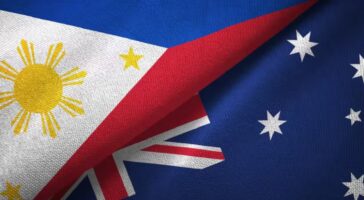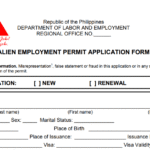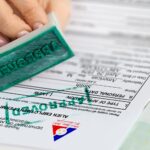Securing a Philippine 9G work visa as an Australian citizen can be daunting and time-consuming. This visa is necessary for any foreign national seeking legal employment in the Philippines. However, the application process involves multiple government agencies, extensive paperwork, and strict compliance with immigration laws. Many applicants face delays, unexpected complications, and rejections due to minor documentation mistakes. Understanding the full scope of what’s required is vital to avoiding unnecessary headaches.
To simplify the process, WorkVisaPhilippines.com offers professional assistance to guide applicants through every step and ensure that all requirements are met efficiently.
Understanding the 9G Work Visa: What It Is and Who Needs It
The 9G work visa is the standard work authorization issued by the Philippine Bureau of Immigration for foreign nationals employed by companies in the country, unlike a short-term business visa, which only allows temporary professional activities, the 9G visa grants full-time work privileges and residency status.
This visa is mandatory for Australians who:
- Have received a job offer from a Philippine-based employer.
- Plan to stay and work in the Philippines for an extended period.
- Need legal work authorization beyond the limitations of a tourist or business visa.
Employers must sponsor the visa, ensuring the application follows Philippine labor laws. However, due to the bureaucratic red tape, many businesses and applicants struggle to navigate the process alone.
Requirements for the Philippine 9G Work Visa
The requirements for a Philippine 9G work visa are extensive and involve both the employer and the foreign employee. Failure to submit a complete set of documents can result in significant delays or outright rejection of the application.
For the Australian Applicant:
- Valid passport with at least six months before expiration.
- A signed employment contract from a Philippine company registered with the Securities and Exchange Commission (SEC) or Department of Trade and Industry (DTI) is required.
- National Police Clearance from Australia to verify criminal background.
- Medical Examination Certificate from a BI-accredited medical clinic in the Philippines.
- Completed visa application forms from the Bureau of Immigration.
- Multiple passport-sized photographs with strict specifications.
For the Employer (Sponsor):
- Business registration documents proving legal operation in the Philippines.
- The mayor’s permit and tax records show compliance with local regulations.
- Justification letter explaining the necessity of hiring a foreign worker.
- Application for an Alien Employment Permit (AEP) from the Department of Labor and Employment (DOLE).
Challenges with Requirements
Gathering all these documents is not as simple as it seems. Each document must be notarized, authenticated, and submitted within strict deadlines. Additionally, Australian applicants often face issues obtaining a police clearance on time or securing a valid medical certificate from an approved facility.
Step-by-Step Process for Obtaining a Philippine 9G Work Visa
Securing a 9G work visa is lengthy and complicated, requiring coordination with multiple government agencies. Without proper guidance, applicants can experience frustrating delays.
Step 1: Secure a Job Offer and Employer Sponsorship
Before applying for a 9G visa, an Australian applicant must have a job offer from a registered Philippine company willing to act as a sponsor. Without employer sponsorship, the application cannot proceed.
Step 2: Apply for an Alien Employment Permit (AEP)
The employer must submit an Alien Employment Permit (AEP) application to DOLE. This process alone can take several weeks as DOLE evaluates whether a local Filipino could fill the position instead of a foreign national.
Step 3: Submit the 9G Visa Application to the Bureau of Immigration
Once the AEP is granted, the employer must file the 9G visa application with the Bureau of Immigration (BI). The application must include all supporting documents that have been adequately authenticated and certified.
Step 4: Undergo Background Checks and Medical Exams
The Bureau of Immigration conducts rigorous background checks on applicants. Additionally, medical examinations must be completed at a BI-accredited medical facility in the Philippines.
Step 5: Wait for Visa Processing and Approval
Depending on government backlogs, processing a 9G visa can take two to three months or longer. Any missing documents or errors will cause further delays.
Step 6: Obtain the ACR I-Card (Alien Certificate of Registration)
After the visa is approved, applicants must secure an Alien Certificate of Registration Identity Card (ACR I-Card) from the Bureau of Immigration, confirming their legal working status.
Why This Process is Overwhelming
Each step involves paperwork, fees, and potential legal complications. Many applicants struggle with unclear instructions, changing regulations, and bureaucratic inefficiencies, making professional assistance highly recommended.
Challenges and Common Pitfalls in the 9G Visa Application
Obtaining a Philippine 9G work visa is not an easy task. Many applicants face serious roadblocks, including:
- Extensive Documentation Requirements: Gathering every required document on time is difficult, especially for foreigners unfamiliar with Philippine legal procedures.
- Long Processing Delays: The Bureau of Immigration and DOLE operate under varying timelines, and applications can be stuck for months.
- Strict Compliance Rules: The Philippine government imposes strict qualifications, making it easy for applications to be denied over minor errors.
- Employer Sponsorship Issues: Some employers fail to provide complete paperwork, causing visa rejections.
- Unexpected Expenses: Visa fees, authentication costs, and additional government charges can quickly add up.
Due to these challenges, many applicants waste time and money navigating the system alone.
Benefits of Hiring a Professional Visa Processing Service
Working with a professional visa consultant like WorkVisaPhilippines.com offers significant advantages:
- Guaranteed Compliance: Experts ensure all documents meet government standards.
- Faster Processing: With industry knowledge, consultants can prevent unnecessary delays.
- Stress-Free Application: Applicants avoid dealing with multiple agencies and paperwork errors.
- Higher Success Rate: Properly filed applications are less likely to be rejected or delayed.
Final Steps After Receiving the 9G Work Visa
Once an Australian applicant secures a 9G work visa, they must:
- Register with the Bureau of Immigration to obtain an ACR I-Card.
- Renew the visa before expiration to maintain legal status.
- Follow local labor laws to avoid visa revocation.
- Notify Immigration of any employment or status changes.
Final Thoughts
Securing a Philippine 9G work visa from Australia is complicated and time-consuming. With strict requirements, long processing times, and multiple government agencies involved, navigating the system alone can be overwhelming. Professional assistance can save applicants time, money, and unnecessary stress.
Is Assistance Available?
Yes! WorkVisaPhilippines.com provides expert visa processing services for Australian professionals seeking employment in the Philippines. Reach out today to schedule an initial consultation with one of our experts.
- Contact Us Here
- Fill Out the Form Below
- Call us at +63 (02) 8540-9623






